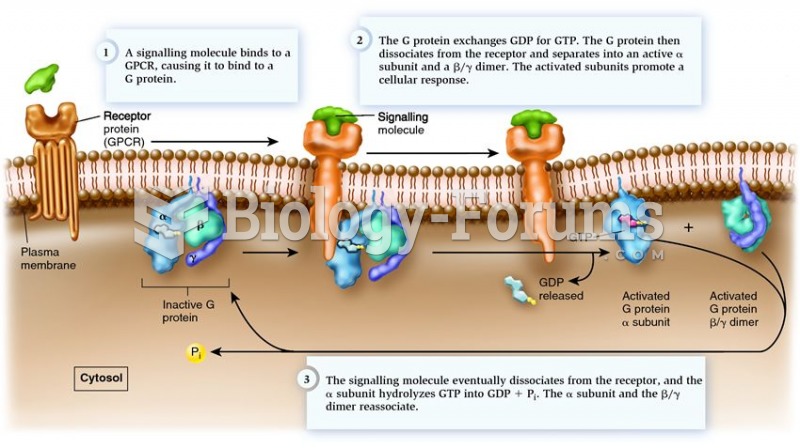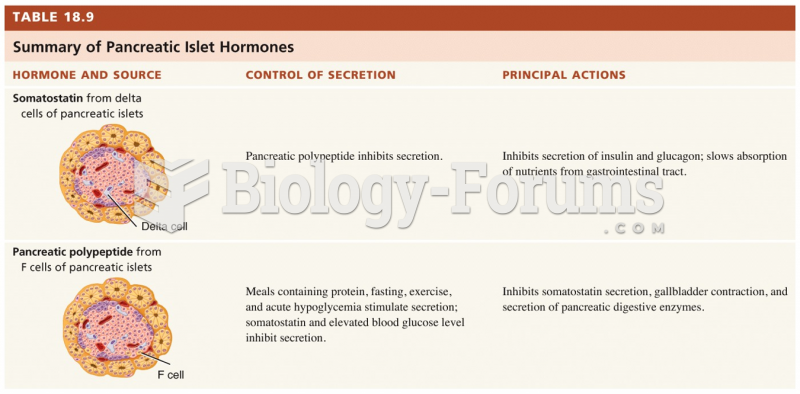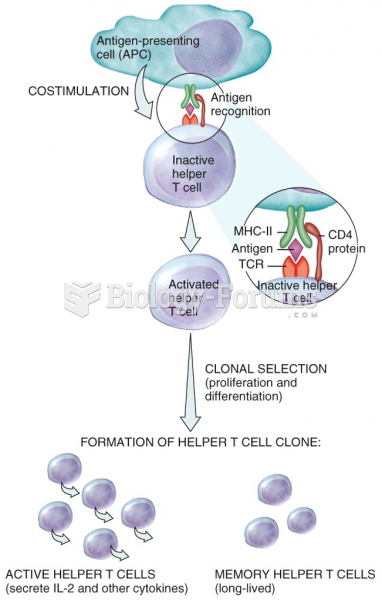|
|
|
Although puberty usually occurs in the early teenage years, the world's youngest parents were two Chinese children who had their first baby when they were 8 and 9 years of age.
The average human gut is home to perhaps 500 to 1,000 different species of bacteria.
The familiar sounds of your heart are made by the heart's valves as they open and close.
Historic treatments for rheumatoid arthritis have included gold salts, acupuncture, a diet consisting of apples or rhubarb, nutmeg, nettles, bee venom, bracelets made of copper, prayer, rest, tooth extractions, fasting, honey, vitamins, insulin, snow collected on Christmas, magnets, and electric convulsion therapy.
People with high total cholesterol have about two times the risk for heart disease as people with ideal levels.







